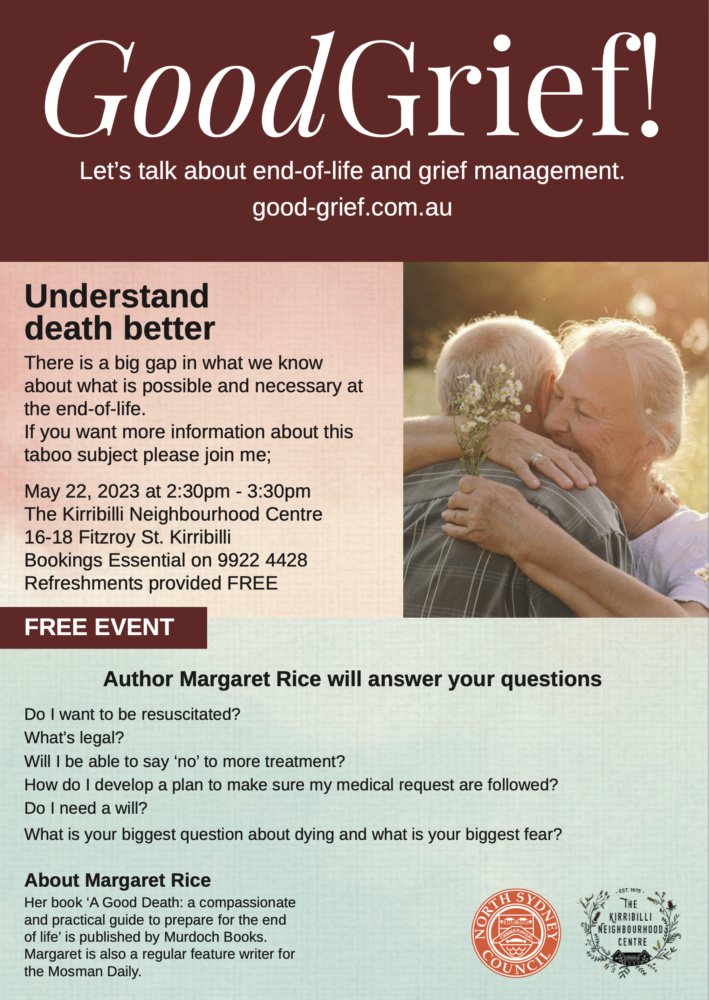How to have the best death possible? We discussed this question and many others in May at Kirribilli.
“It was lovely to meet you and be part of the workshop. I very much enjoyed watching you engage with the audience and the way you navigated conversations. From my perspective, it went very well,” Camelia Tobia, Access and Inclusion Co-ordinator, North Sydney Council.
We had a great session. Fourteen people joined us – most were from the local community but two had travelled from the Central Coast – thank you to those people especially, and to all for contributing to an interesting discussion.
One beautiful and very brave participant opened up about how she does not want to die alone.
But she lives alone and along time ago lost her trust in institutions, doctors and lawyers. I don’t want to give the impression she was vulnerable. She was one of the strongest, most powerful people in the room. Is she lonely? I don’t know. But she was very open about her ‘aloneness’.
She also wants to have the best death possible.
The group, including a knowledgable representative from the the local health care district, listened and offered suggestions about how someone who wants to retain their autonomy and maintain their privacy and sense of control can achieve the good death.
It is a real challenge. Because today, as a society, we believe the ideal death is one that is pain free and one in which our wishes are followed, our personhood respected.
But to achieve this we need to negotiate with others, talking to health professionals to say what we want, talking with other advocates to ensure they really understand us.
So my friend presents a conundrum: how do we achieve the best death, when we live in isolation and want to retain our autonomy?
For more on the subject of aloneness at death, see:


